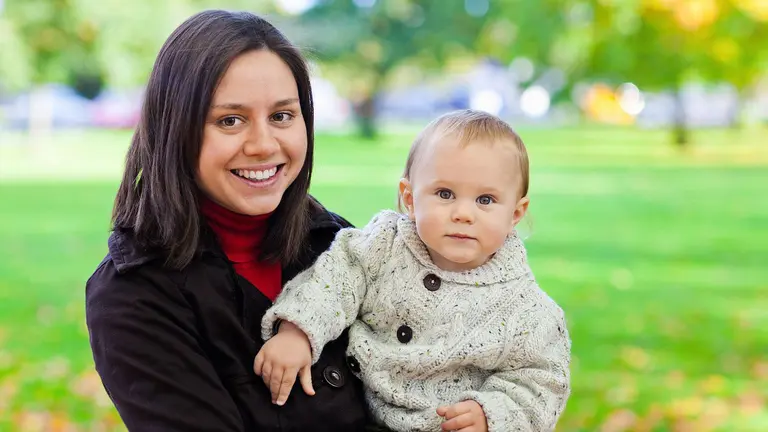Anxiety is a human emotion and we all feel it at one point or another. It can be useful in a sense that it works like our own natural alarm. A way of our brains responding to a perceived threat or danger. But when these normal reactions extrapolate and stop a person from leading a healthy and normal life is when help is needed and recommended.
We are not talking about being nervous about a test or a job interview, however valid those feelings are. We are referring to paralyzing fear, whatever its cause, that affects a person’s ability to function or manage day-to-day life, that may lead to several different mental health issues like depression and makes it necessary to seek help.
According to the World Health Organization (WHO), there are around 300 million people afflicted by incapacitating anxiety and another 300 million suffering from depression which makes theses diseases the most impactful on the economy overall, creating a cost of about one billion euros in lack of productivity worldwide.
In Finland, according to Statista numbers, there are approximately 8% of people suffering from self reported depression. And, in a July 2019 article, Yle News stated that one in five young Finnish people “suffer from a type of mental disorder requiring immediate help”.
The same article, mentioned that in the capital area alone, the number of referrals for specialized medical care for youth psychiatry grew, in the past 10 years, by 40%, with the wait for an appointment being an average of three months. Although for emergency situations the wait is far shorter.
As of yet, experts still don’t know the root causes of this illness, with many believing that chemical unbalances, a person’s particular situation or traumatic events on their own are not the only reason for having it and genetic makeup has an influence as well.
Multiple types of anxiety
To better understand this topic we have to realize that there are multiple types of anxiety.
So before we go into different therapies and treatments, here are the considered main types of anxiety:
- Trauma: the memory of having survived a violent event in life, like war or an assault, paralyzes a person and they isolate at home. Surviving such type of events often results in PTSD (Post Traumatic Stress Disorder).
- Phobias: Specific situations or animals can trigger an overwhelming sense of fear, like arachnophobia, the irrational fear of spiders.
- Panic attacks: unexplainable and sudden, they usually cause dizziness, shortness of breath, cold sweats, accelerated heart rate, stomach pain and an unshakable feeling that the person is about to die.
Currently, however, there is an added stress induced factor that contributes to these issues: the Covid-19 virus that is affecting the entire world.
People already dealing with some type of anxiety see their stress levels increased and people who never had it start to feel more deeply anxious over the fears this new virus has brought.
How to deal with anxiety disorders
From the traditional to the new solutions, there are several types of ways to help deal with anxiety related disorders and which one is better depends on each person, but here are seven of the most frequent:
- Medication: the most common and, usually, one of the most effective ways. It can stop a panic attack fast or restore chemical balance to the brain. Always ask for doctors advice and never self medicate.
- Individual therapy: many times, just talking about our concerns with a neutral, non judgmental expert that is legally bound to keep such conversations secret, is enough to help manage or overcome anxiety and it can be done as an alternative or a complement to medication.
- Group therapy: there is still a big stigma about mental health, so being in such a group can help people, who think they are the only ones dealing with a specific type of anxiety, share their experiences as they can see others in the same situation, and support and motivate each other. Usually these groups will use 12 step type of programs as a way to introduce new behaviors to make the brain work in a different and less negative way.
- Exercising: from yoga to weight lifting to aerobics or running, physical activity is proven to help people calm down and feel happier. This has to do with the chemical reaction in our brains that are released when we work out and that are responsible for the feelings of happiness and relaxation, like endorphins and serotonin, for example.
- Meditation: done in a regular basis, this is another method with science-based benefits as it helps with controlling stress, decreasing blood pressure, creating healthy sleep patterns, increased self discipline, lengthens attention span and studies found that it can even help with age-related memory loss. There are a lot of meditation websites and apps online and many of them are free.
- Animal therapy: this is another type of help with proven results. There are studies showing that regularly interacting with an animal, especially dogs, horses or dolphins, reduces heart rate and rises serotonin production. Therapy with especially trained dogs, for example, is particularly effective as the animals are trained to understand when the person is getting more anxious or about to have a panic attack and to redirect the owners or patients attention to them, by putting their faces on a persons lap, asking for pets or licking a persons hands.
- Cognitive behavioral therapy: in essence, this is about facing ones fears head on and learning techniques to train the brain to focus on details outside the uncomfortable situation. This, of course, is easier said than done but trying things like going to a crowded and public place, that one would normally avoid, and once there, getting the brain to focus on details like the stores decorations or imagining stories about passing strangers can distract the brain from the fear. It is one of the most studied therapies and one with the best results, which objective is to get a person’s brain to do these techniques automatically, allowing a person to lead a normal life.
As we said before, the fact that we are now dealing with a pandemic is not helping matters such as this and having to be in self isolation or quarantined can be an added stress. So, call your doctor or residential health station first for advice on your particular case.
If you are in Finland and are suffering from some type of anxiety or depression please call the Finnish Association for Mental Health: 09 4770660 and ask for help.









